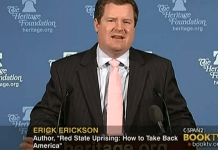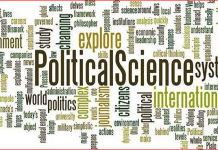The recent legal debate surrounding presidential immunity has garnered widespread attention, particularly in the context of former President Donald Trump’s efforts to overturn the 2020 election results. While legal analysts initially viewed Trump’s claims of immunity skeptically, the Supreme Court’s recent oral arguments have introduced new complexities to the discussion. In this blog, we will delve into the key points of contention surrounding presidential immunity, the arguments presented during the Supreme Court hearings, and the potential implications for future presidents.
- Background of the Debate:
The debate over presidential immunity stems from Trump’s assertion that he is immune from criminal prosecution for actions taken while he was in office. This claim has sparked intense scrutiny and debate among legal experts and observers, raising fundamental questions about the limits of presidential power and accountability. - Supreme Court Hearings:
During the recent Supreme Court hearings, several justices expressed openness to the idea of providing limited protection to former presidents from criminal liability for official acts conducted while in office. This unexpected development has surprised many court observers, who had anticipated a more skeptical reception of Trump’s arguments. - Concerns and Criticisms:
Despite the Supreme Court’s willingness to entertain the notion of presidential immunity, many legal analysts and experts have raised concerns about the potential implications of such a decision. Critics argue that granting immunity to former presidents could undermine the principle of accountability and erode public trust in the justice system. - Scope of Official Conduct:
A central point of contention during the hearings was the definition of “official conduct” and the extent to which it should be exempt from criminal prosecution. Justices grappled with hypothetical scenarios, such as whether a president could order the military to stage a coup, highlighting the complexities of the issue at hand. - Balancing Act:
The Supreme Court faces the challenging task of striking a balance between protecting former presidents from politically motivated prosecutions and ensuring accountability for potential wrongdoing. The outcome of the court’s decision will likely set a precedent for future cases involving presidential immunity. - Historical Precedents:
The debate over presidential immunity is not new, with past cases such as U.S. v. Nixon and Clinton v. Jones offering insights into the legal principles at play. However, the current case presents unique challenges and complexities that have not been addressed in previous rulings. - Implications for Future Presidents:
Regardless of the court’s decision, the outcome of this case will have far-reaching implications for future presidents and the broader legal landscape. The ruling will shape the boundaries of presidential power and influence the dynamics between the executive branch and the judicial system. - Divided Opinions:
Experts predict that the Supreme Court’s decision on presidential immunity is likely to be divided, reflecting the complex and nuanced nature of the issue. A split decision could further fuel debate and uncertainty surrounding the concept of presidential accountability. - Delayed Trial:
The Supreme Court’s decision to hear Trump’s immunity claim has delayed the trial for his election subversion case, raising concerns about the potential impact on the judicial process. The trial’s postponement has fueled speculation about the timing and outcome of the proceedings. - Conclusion:
As the legal debate over presidential immunity continues to unfold, it is clear that the Supreme Court faces a daunting challenge in navigating the complexities of this issue. The outcome of the court’s decision will shape the future of presidential accountability and set important precedents for years to come.























